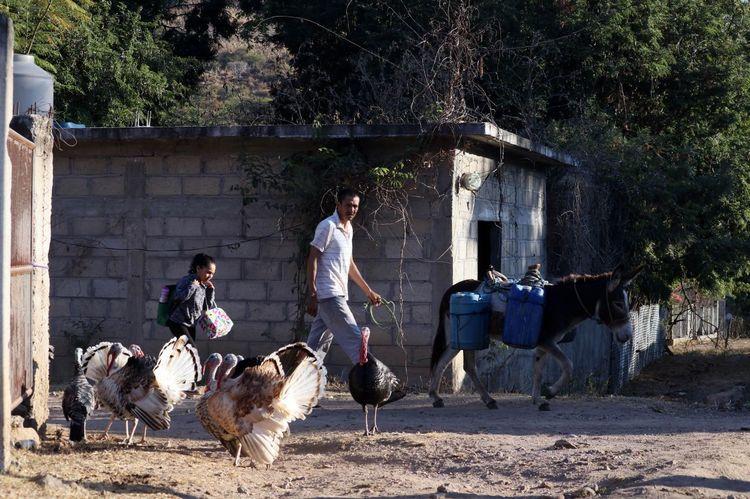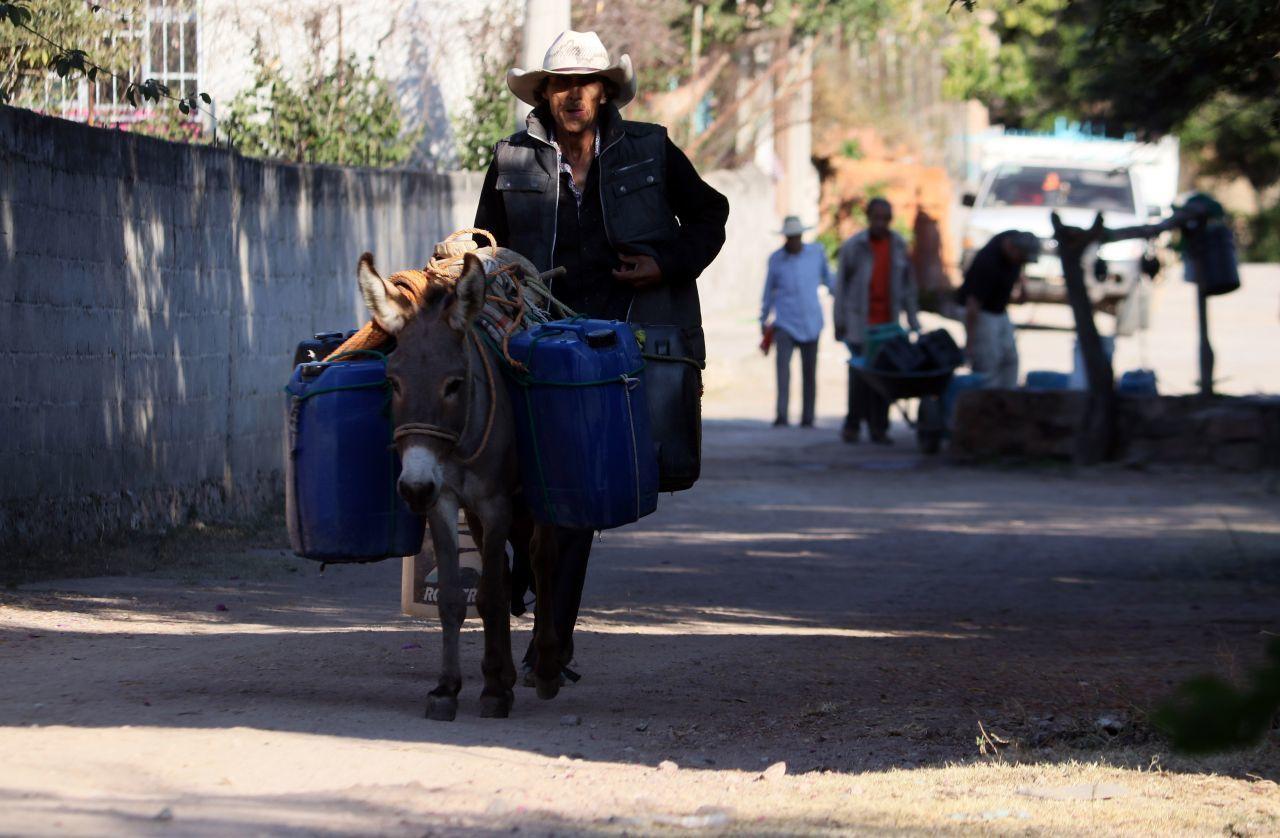The Supreme Court of Justice of the Nation (SCJN) issued an ultimatum to the Congress of the Union for the publication of the General Water Law after more than 10 years of legislative omissions to comply with article 4 of the Constitution, which protects the human right to water.
“Everyone has the right to access, disposal and sanitation of water for personal and domestic consumption in a sufficient, healthy, acceptable and affordable way,” says Article 4 of the Magna Carta, amended on February 8, 2012. After the update, Congress had 360 days to publish the above-mentioned General Water Law, in accordance with the third transitory of the reform.
Last January, the SCJN resolved 11 constitutional disputes brought by municipalities in Chihuahua against the Congress of the Union, for ignoring the instructions to issue a law within the established time period. Based on seven other controversies previously resolved on the same issue, the Court ordered Congress to issue the Act before the end of the next session.
Faced with the delay, the chambers of Deputies and Senators must decide the future of water resources before the established deadline, April 30, 2022.
On the legislative debate floor, there are two bills with different objectives.
The first is the citizen initiative presented by the Water For All Coordinator, based on a series of forums and alliances with community and civil society organizations, as set out on its website.
The second is a proposal submitted by deputies Feliciano Flores Anguiano, of the National Regeneration Movement (Morena), and Mario Mata Carrasco, of the National Action Party (PAN), after 35 consultation forums, according to information published by the dissemination area of the Chamber of Deputies.

Photo: Margarito Pérez/ Cuartoscura
“Water for All” Initiative
Water For All is a coordinator of social movements related to water, said her spokeswoman Alejandra Parás.
Through a series of meetings, forums, discussions and organization, a bill came to fruition that proposes a radical change in the paradigm that exists today regarding the right to water supply and sanitation.
From the first national congress to think about a bill to the official presentation of the proposal to the chambers of deputies and senators, the consensus took more than six years, Parás said.
The current National Water Act was published in December 1992, during the six-year term of Carlos Salinas de Gortari, and has among its main foundations private participation in the management and exploitation of water, through concessions.
From the perspective of Water For All, this is a 'neoliberal' law that privileges those who have the most.
Alejandra Parás asserted that, in addition to the water crisis that is already affecting large cities such as Mexico City, Guadalajara, Monterrey or border cities in the north, there is a serious problem in distribution.
“We can see that there is a situation of inequity in access to water, which has become more noticeable with the health crisis we are experiencing. Meanwhile, many millionaires hoard water,” said the activist.
The Water For All Act initiative establishes in Article 1 access to water as a “human right”.
“We began our process by agreeing on the changes required in the management of water and basins in order to comply with our rights and those of future generations to water and associated rights: to a healthy environment, to health, to food, in a context of climate crisis and inequality,” reads the justification for the citizen proposal, delivered in February 2020 to the Congress.
The document addresses, among others, the rights of indigenous peoples and communities to the waters in their territories, as well as respect for their cultural rights and forms of government; sustainable management of water resources; sustainability in the use, use and management of water and basins; and the rights to health, food and a healthy environment, in relation to water.
The spokeswoman for Agua Para Todos claimed that this is the most complete initiative because it has “the face of Mexico” printed on it.
“It's not made by an organization or politician who wrote it from the comfort of their desk in Mexico City, this proposal carries the voices of people who have to walk 7 kilometers to get water, or of four-year-old children sick from drinking contaminated water,” he said.
One of the premises of the Act is to end the “corrupt concession system,” Alejandra Parás added.
The National Water Commission (Conagua) currently has more than 585,000 concessions to extract water.
Article 27 of the initiative establishes that Conagua would have powers not to renew or cancel concessions granted to federal areas and, where appropriate, to remove buildings that interfere with the optimal functioning of the basin and surface and underground flows.
“No individual may hold a total volume of rights and concessions at the national level greater than 500 thousand cubic meters per year,” it says. There are currently concessions with permits to extract more than 650,000 cubic meters per year, equivalent to the amount of water from 260 Olympic swimming pools, based on data from the Public Water Rights Registry (REPDA).
For Alejandra Parás, megaprojects and territorial conflicts are closely related to access to water, such as breweries, agricultural crops and mining.
“We need to change that vision of the obsolete law that encompasses everything in (distribution) tubes, a more territorial vision is needed,” he said.
“Water for everyone, but all sectors”: representative Enrique Godinez
The proposal of deputies Feliciano Flores and Mario Mata, presented in August 2020 before the Plenary, states that a radical change is not necessary, but rather to adapt the existing law to the principles of article 4 of the Constitution.
This initiative was signed by more than 40 legislators from all political forces.
The document states that concessions must be regulated and that it is committed to discounts and incentives for industries that recycle water or reduce the pollutants discharged into the aquifer.
Article 1 indicates that the purpose of the Act is to establish provisions that promote, respect, protect and guarantee human rights associated with water and sanitation. It also defines the bases, principles, supports and modalities of management, administration, access, disposition and comprehensive use.
Deputy Enrique Godinez, secretary of the Committee on Water Resources, Sanitation and Drinking Water of the Chamber of Deputies, told Journalism Causa Natura that both initiatives are being analyzed, but he said that there is “a consensus” in favor of the proposal presented by legislators.
For the PAN deputy, it is not necessary to make radical changes, since he says that a more ambitious law could involve “stumbling blocks”.
“Changing the current law would lead us to a much larger law, and perhaps we could have more obstacles along the way. That is why we think and defend that the Law be restructured, that there are things that need to be modified but for all uses,” he said.
He stated that the initiative of deputies Flores Anguiano and Mata Carrasco does provide for some aspects pointed out by the Water For All Coordinator, but it is not limited to the productive sectors.
“We are exploring all possibilities, taking everyone into account, because the most important thing is water for everyone, but for all uses. And everyone has something to do with it there, industry, agriculture, commerce, there are many aspects that must be taken into account in this,” he said in an interview.
In this regard, Alejandra Parás, spokeswoman for Water For All, asserted that the deputies' proposal, which she described as the “Killer Flower Law”, is a continuation of the existing law, which, she said, favors “millionaires of water”, in reference to large volume concessions.
He also accused deputies Feliciano Flores and Mario Mata of having a conflict of interest, since he assured that both are involved in the agricultural sector, in lemon and walnut crops, in Michoacán and Chihuahua, respectively.
Alejandro López Tamayo, director of the organization Centinelas del Agua, said that there is resistance on the part of some sectors that dominate the resource through concessions across the country.
The hydrogeologist also pointed out that a new Law is especially relevant for the Yucatan Peninsula, since the current National Water Law does not recognize the existence of regional karst soil, or of caves, caverns and cenotes, so it does not establish protection mechanisms.



Comentarios (0)